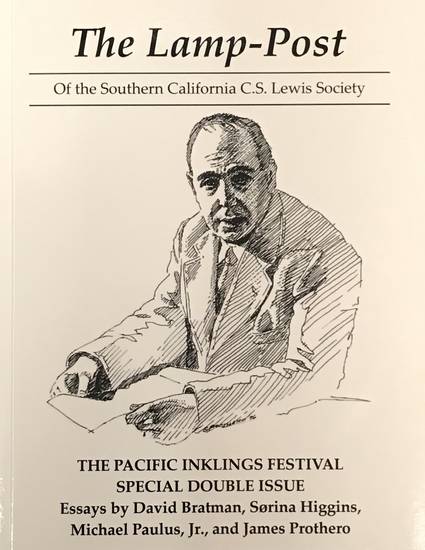
Article
From the City to the Cloud: Charles Williams’s Image of the City as an Affirmation of Artificial Intelligence
The Lamp-Post of the Southern California C.S. Lewis Society
(2019)
Abstract
A number of Christian intellectuals who lived through the “catastrophic” twentieth century had a deep distrust of “technological innovation.” C. S. Lewis lamented the impact of technology on education, Dorothy L. Sayers lamented the impact of technology on community, and J. R. R. Tolkien lamented the impact of technology on the environment. Jacques Ellul saw technology as a human rejection of God’s work. For Ellul, this was the meaning of the city: from its primordial origins through its apocalyptic end, the city was a “counter-creation”—a technological negation of God’s Edenic creation.
Charles Williams stands out from among his contemporaries in his affirmationof technology. After living most of his life in London as an author and an editor for Oxford University Press, due to the Second World War Williams was forced to spend his final years in Oxford—which he called a “parody” of London. Whereas Ellul saw the city as a diabolical, artificial, and autonomous multi-agent system—using terms that make the city seem like a rogue form of artificial intelligence—Williams affirmed the technological city as a divinely ordained project of and for human transformation. Moreover, Williams developed a constructive theology of technological work. Although he was not fully aware of the information revolution he was living through, which was creating a world to be filled with autonomous and intelligent systems, Williams’s theological reflections on the city as a place for the reconciliation of divine and artificial agency can help us reflect on our role and destiny in our emerging information environment.
This paper begins with an introduction to Ellul’s view of the city, which is a view of technology as a deformative counter-creation. Williams would have described Ellul’s approach to the city as “the Way of Rejection,” which renunciates “all images.” Then it will introduce Williams’s alternative view of the city—and work init—which follows “the Way of affirmation,” or “the approach to God” through images. In this view, technology and technological work participate in transformative co-creation. Next, it will provide an orientation to the information revolution we are currently living through and conclude with some comments connecting current hopes and fears related to artificial intelligence with Williams’s affirmation of technology and of technological work as means for participating in new creation.
Disciplines
Publication Date
Spring 2019
Citation Information
Michael J. Paulus. "From the City to the Cloud: Charles Williams’s Image of the City as an Affirmation of Artificial Intelligence" The Lamp-Post of the Southern California C.S. Lewis Society Vol. 36/37 Iss. 4/1 (2019) p. 4 - 21 Available at: http://works.bepress.com/michael_paulus/63/
